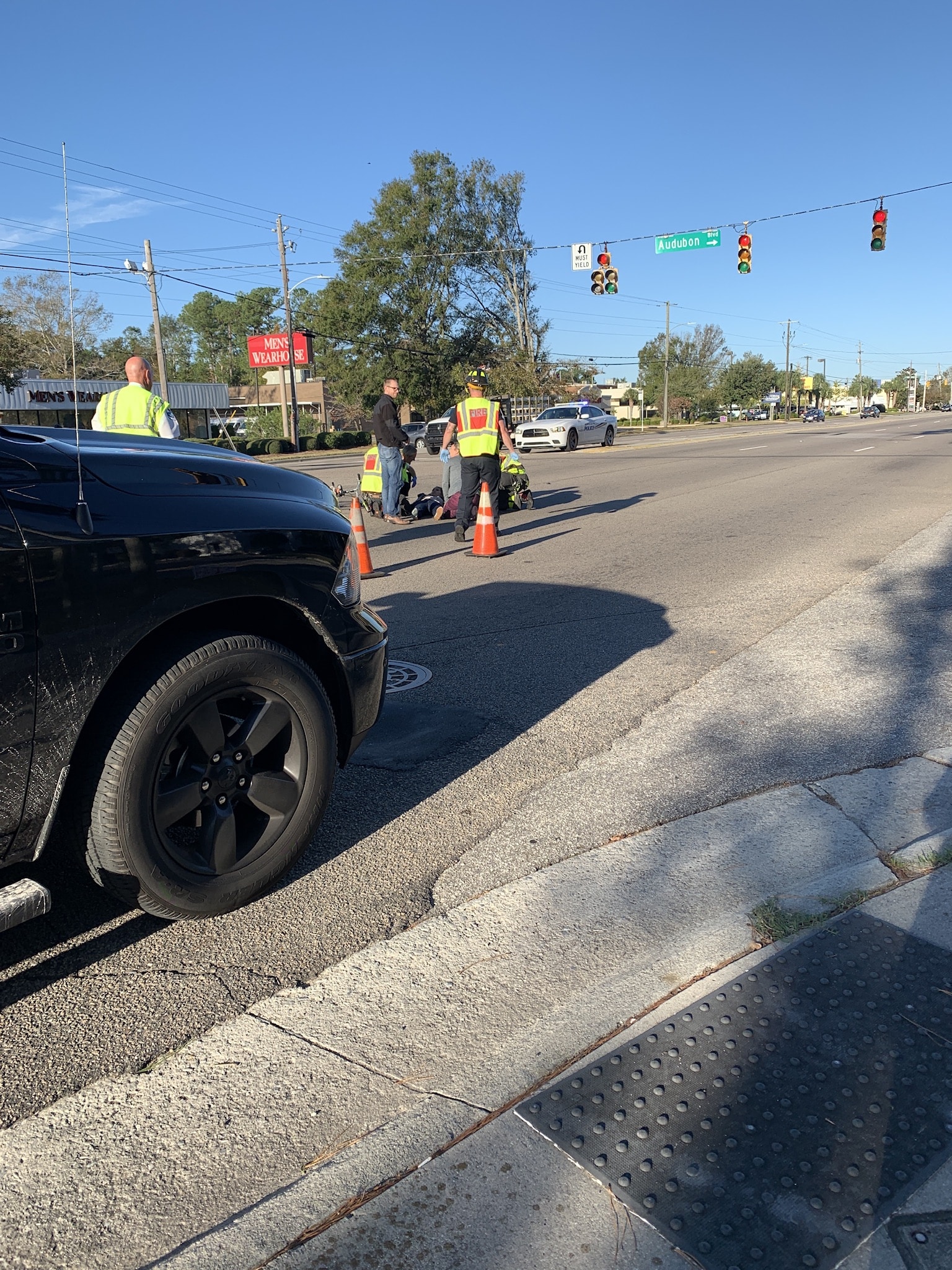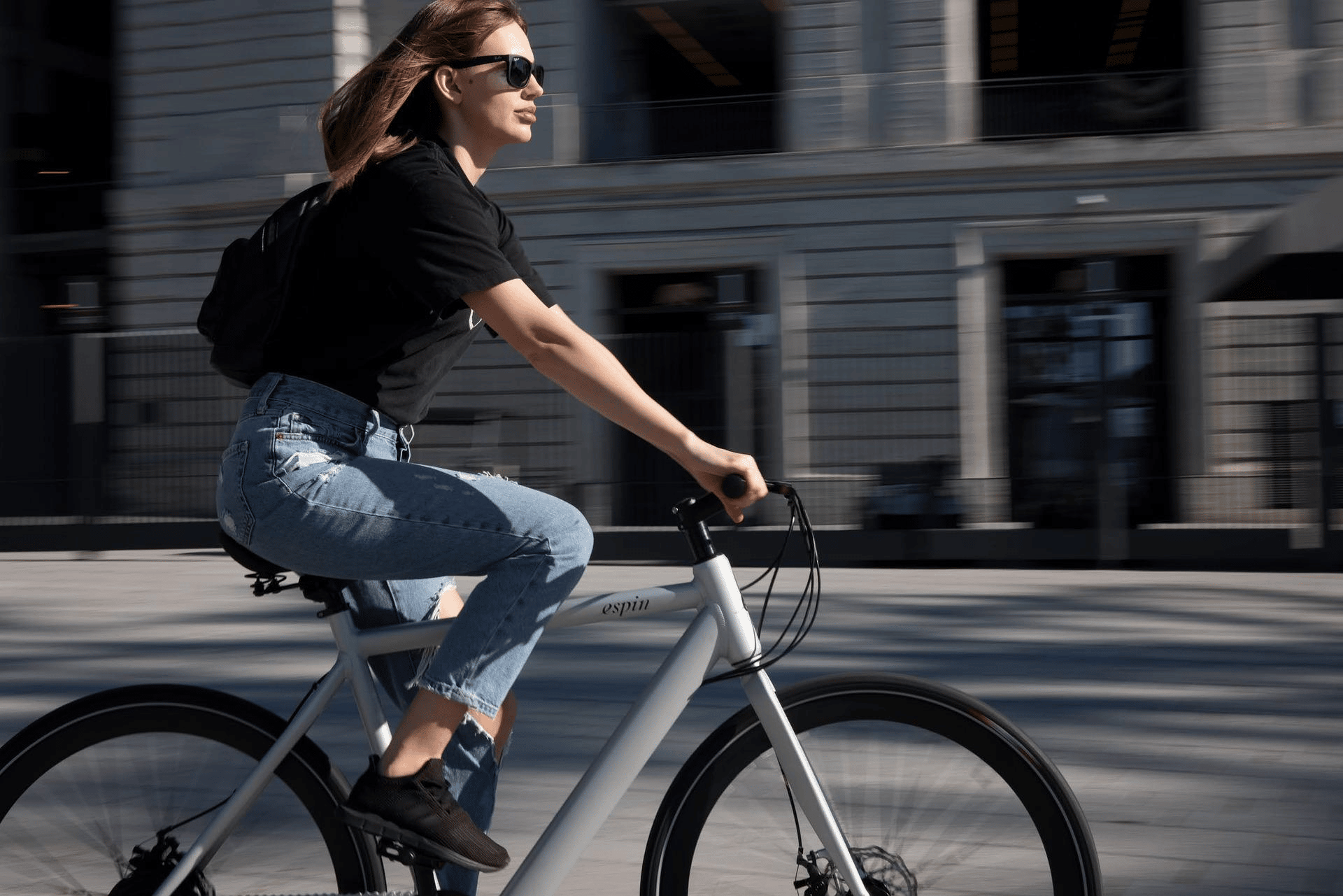Senate File 424 is working its way through the Iowa legislature. If passed, the bill would require bicyclists in Iowa to use a white headlight and red tail light when riding a bicycle at night. Currently Iowa law only requires bicyclists to use a white headlight with either a red rear reflector or a red rear light. If the law passes cyclists would no longer be legal to operate at night without a red rear light.
I think this law is bad for cyclists and good for negligent drivers, and if you’re a cyclist I strongly urge you to oppose this law in its current form. I have handled hundreds of bicycle cases over the years and by far the most effective defense I’ve seen lodged against cyclists after a collision is that they did not comply with statutory lighting requirements when riding at night. If passed, this law will provide yet another defense for negligent motorists to use against cyclists they strike at night.
When someone calls my office to tell me they have been hit by a car while riding their bike I have two questions I ask very early on in the conversation. First, I ask what time it happened to determine if it happened at night. If it happened after dusk I ask the second question, which is, “Did you have a headlight?” This is because the lack of headlight is such an effective defense whatever the circumstances of the collision.
I have been known to say that if you ride your bicycle at night without a headlight motorists can basically do whatever they want to you, say they didn’t see you, then point to the lack of headlight as a statutory violation which is a very effective affirmative defense. The defense will pound the theme home that, “Bicycles are supposed to follow the same rules as cars. You wouldn’t drive a car without headlights, would you?”
Laws passed under the guise of making cycling safer should provide that violation of such laws cannot be used as a defense in civil proceeding. That way law enforcement is empowered to issue tickets to bicyclists for violating the laws, but in the event the cyclist is hit by a negligent driver the cyclist’s claim of negligence against that driver will not be defended on the basis of a statutory violation.
Helmet laws are a good example. Helmet laws are always offered for the purpose of preventing injuries and making cycling safer, however, most helmet laws provide a good defense for a motorist who strikes a bicyclist who fails to wear a helmet. The motorist argues that if the bicyclist had been wearing a helmet they would not have been injured, when in fact, it is often difficult or impossible to determine whether or not the helmet would have prevented the injury. I have seen many cases in which a bicyclist suffered a head injury when wearing a helmet.
The township of Deerfield, IL, took this into consideration when drafting their helmet law. Deerfield instituted a law requiring anyone under the age of 16 to wear a helmet while riding a bicycle. Deerfield did not want negligent motorists using the law to skirt liability so they included language that would prevent the lack of helmet from being used as a defense in a civil suit. The law reads in relevant part, “A violation of this Section shall not constitute negligence, contributory negligence, assumption of risk, be considered in mitigation of damages of whatever nature, be admissible in evidence, or be the subject of comment by counsel in any action for the recovery of damages arising out of the operation of any bicycle, or participation in skateboarding or in-line skating, nor shall anything in this Section change any existing law, rule or procedure pertaining to any civil action.”
Head injuries are common in bicycle cases regardless of helmet use. Cyclists who suffer head injuries often cannot remember the events leading up to a collision. In such a case the motorist may falsely claim that the bicyclist did not have proper lighting equipment, and the bicyclist may be unable to refute that claim because they cannot remember the events leading up to the collision. The defense counsel will establish that the cyclist doesn’t remember the events before the accident and ask, “So you have to admit that as you don’t remember the accident you couldn’t know for sure if your lights were on at the time of the accident, right?” Say what you want about how to respond to that question, but you can be sure that it gives the defense something effective to talk about in their closing argument.
If Iowa would like to make its roads safer for cyclists it is fine to add requirements for more lighting equipment, but don’t make it easier for negligent motorists to defend themselves in the process. How about including language that would provide that a failure to use the red rear light cannot be used as a defense? If this law is passed with its currently proposed language it will be harder for bicyclists to recover against negligent motorists. In every night time case where a bicyclist is struck without proper lighting you’ll see the violation used against the cyclist regardless of the circumstances of the collision. Bicyclists are already a vulnerable minority, and it’s already hard enough for a cyclist to try to make a claim against a negligent motorist. If safety is the real concern then the goal of safety should be accomplished by the ability of law enforcement to issue tickets without providing another defense for negligent drivers.
The proposed language of the bill:
1 32 321.397 Lamps on bicycles and bicycle riders.
1 33 Every At the times specified in section 321.384, a bicycle or
1 34 its rider shall be equipped with a lamp on the front exhibiting
1 35 a white light, at the times specified in section 321.384,
2 1 visible from a distance of at least three hundred feet to
2 2 the front and with a lamp on the rear exhibiting a red light
2 3 visible from a distance of three hundred feet to the rear;
2 4 except that a red reflector may be used in lieu of a rear light.
2 5 A peace officer riding a police bicycle is not required to use
2 6 either front or rear lamps if duty so requires.










